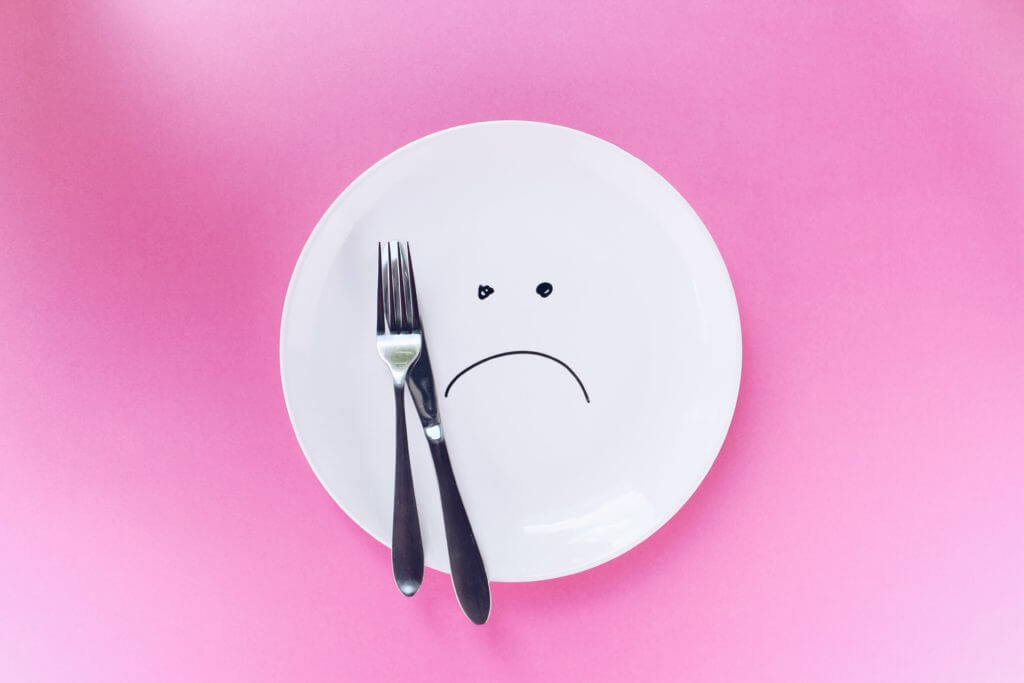“I am in calorie-deficit for months but still not able to lose weight” – Said a person who was not really in a calorie deficit.
If you’re trying to lose some weight and have been working hard to reach your goals, you can do that after staying in a healthy calorie-deficit for months. Calorie-tracking needs practice, time, and patience. Once you learn how to manage calories, you can design your diet plan to lose weight, gain weight, or control weight. So, calorie tracking is essential for everyone. And, for weight loss, it is essential to know what is a healthy calorie deficit and how can you achieve it?
So, this article reveals everything about calorie deficit and how you can do it the right way.
What are Calories?
Calories are a unit of energy that we get from our food or drinks. So, if your food or beverages says 100 calories, it’s a way of expressing the energy your body will get after devouring it.
And, calorie-deficit is when you consume fewer calories than you burn.
So, if you have to lose weight, you need a calorie deficit, no matter how much you exercise. If your goal is to increase weight, you need more calories than you burn, and if your goal is to maintain weight, you require a perfect balance of calorie intake(not too little and not too much). Looks simple? Right!
It is simple when you know how much to eat and what to eat to estimate your total calorie intake and total daily energy expenditure(TDEE).
Calorie Expenditure has three components:
- Resting Energy Expenditure(REE): The number of calories you burn when your body is at rest. REE helps us perform essential functions that keep us alive, like breathing, blood-circulation, basic neurological functions, and organ functioning.
- Thermic Effect of Food(TEF): We spend some of the calories of the food we consume to digest, absorb, and metabolize the rest of the food. This process is Diet-Induced Thermogenesis(DIT), Specific Dynamic Action(SDA), or Thermic Effect of Food(TEF).
- Activity Energy Expenditure: This includes the calories you burn during exercise and non-exercise activities. Non- exercise activities include fidgeting, standing at your desk, or even carrying groceries.
When you provide your body fewer calories than required for all these three components, you set yourself in a calorie deficit that results in weight loss when done for a longer time. If you offer more calories than it needs, you put yourself in calorie-surplus, leading to weight gain.
Why is calorie-deficit essential for weight loss?

Weight-loss becomes difficult when you’re bad at tracking calories. Despite all that hard work you put in your daily workouts, you have to take care of your calorie requirements. There are fitness bands, apps, etc., that can help you track the calories you burn, but they are not 100% accurate. They can only provide you a rough approximation, so relying solely on them isn’t the right approach. Here, the calorie deficit plays an important role. Just cut down your daily calorie intake starting with 100-200 calories, then you can adjust according to your goals. And, use your workouts to help you in your weight-loss by burning additional calories.
But, how can one estimate the calorie intake?
There are calorie calculators available on the internet that can help you calculate your daily calorie intake, and they can provide you a good estimate of your maintenance calories.
If you want to know your exact maintenance calories:
- Measure your weight on the first day, track your calories for successive ten days, step onto your weighing machine again, and check your weight after ten days. If your weight is the same, then you’ll get the value of your maintenance calories.
- Calculate your average daily calorie intake by dividing the total calories you consumed for ten days by 10.
- Now comes the final step. If you want to set yourself for weight loss, subtract 500 calories, which is now your calorie requirement for weight loss. And, if you need to gain weight, add those calories, and you’re all set.
Is calorie deficit the only way out?
Weight loss requires lots of patience, time, and consistency. It is not a one day, week, or month process. It’s a lifestyle change; obviously, there are many fad diets available on the internet that promise you a quick weight loss. But, they’re just false unhealthy promises.
Weight loss demands calorie deficit( not starvation), exercise, and a right positive attitude. Calorie requirement drops with a drop in weight, so adjust your daily intake accordingly.
A good calorie deficit is 500-1000 calories a day and will not cause any health problems. Anything more than that can be lead to nutrients deficiency. Remember, you’re not required to starve yourself to lose weight. So, the minimum calorie requirement for women is 1000-1200, and for men, the maximum is 1500.
These numbers aren’t the same for everyone. They keep on changing depending on your age, physical activities, muscle mass, etc.
But still, I’m not able to lose any weight.
Why is your calorie deficit not working, and how can you fix it?
- Swap sugary beverages with water: Everything you consume- counts! Whatever you eat or drink (except water) goes into your daily calorie intake. Reduce or eliminate sugary beverages like sodas, fruit juices, etc. They provide empty calories and thus increases your calorie intake without any benefits. Alcoholic drinks also have calories that can add to the total calories and, when consumed in excess, gives nothing but weight gain and health problems. Try to reduce their intake. They can quickly increase your weight without you even realizing it. Drop them and pick water.

- Go easy with dips and sauces: They may not look like a significant calorie contributor, but sadly they often account for the maximum calories in the meal. Most of them are packed with fat, sugar, and other ingredients to enhance the taste. They enhance not only the flavor but also the calories without providing any nutrients. Now, add them and see if you’re really in a calorie deficit.
- Eat at home: Preparing meals at home can help you track your calories better. Home-cooked food allows you to pick ingredients yourself, and you have all the liberty to decide what and how much you need for your meal. The food we get outside focuses more on making it delicious rather than healthy. So, home-cooked food allows you to command your ingredients and portion size. So, save calories and save your money too!
- Choose less processed food: Avoid highly processed food and look for healthier alternatives. Highly processed food like fast food, dessert, sugary beverages, etc., contains lots of sugar, fat, and salt, making them delicious at the cost of very high calories. And their drive encourages extreme consumption. So, go for minimally processed food rich in fiber, protein, vitamins, and minerals. They will keep you full for longer, thus preventing overeating and help you get the essential nutrients.
- Get moving: Exercise, exercise, and exercise! You can do whatever you like to keep yourself fit and active. Your calorie deficit will not alone does wonder. You have to move your body to maintain weight even after losing some through calorie-deficit. I have seen people following extreme diets, losing weight, and gaining it all over again. You can’t stress your body too much by eating too little. There’s a limit, and you have to follow a healthy, sustainable diet plan. Lift some weights, keep moving, and build muscle strength to see the long term results.

- Health issues: These are some mistakes that might fail your calorie deficit. But, there are other health problems that you might not be aware of behind your slow weight loss. Also, a weight loss plateau can make your weight loss process slower. So, visit a doctor and ask for help.
Quick tips:
- Eat healthy food and nourish your body with love and care.
- Don’t get harsh on yourself by practicing an extreme calorie deficit.
- Ask for help if you’re confused about the process.
- Workout at least 3-4 times a week, and stay active.
- Get your required calories from whole food.





4 Comments
Indiacafe24.com
February 10, 2021 at 10:34 amVandana are you a Nutritionist dear….. I am glad to see such informative post on your portal which are in reality of excellent quality and helpful for the readers
Sweety Joshi
February 14, 2021 at 3:38 pmAll the tips are on the point! Factual and interesting topic you choose. Every week I know something unique on your blog. Keep it up Girll,long way to go!!🙋🏻♀️🥳
Kiwi Tandon
February 14, 2021 at 4:08 pmNice tips … sometimes I don’t bother to see calories while eating .. but I think now I have to be more focus . This is very great post . Thanks dear
Indu
February 14, 2021 at 11:41 pmVery nice information we never see calories while eating and my mom is in process of weight reduce sure this post will be helpful for her